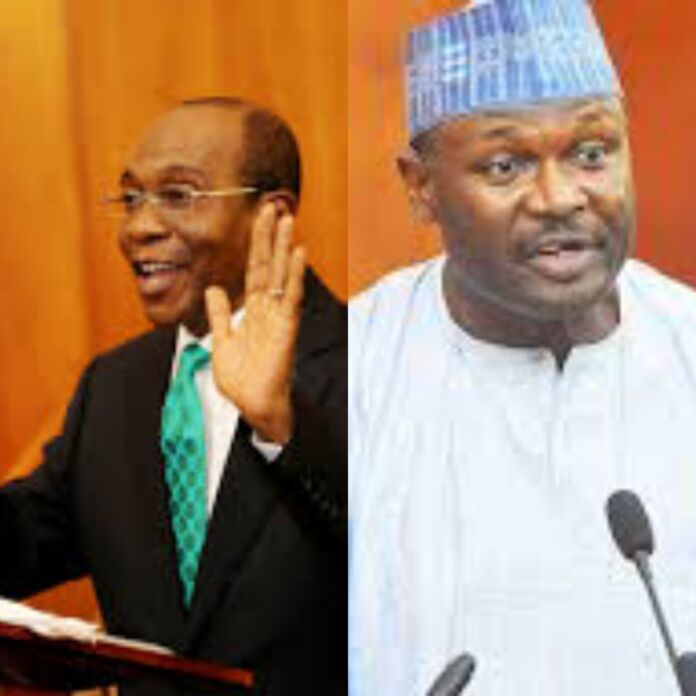On June 4, 2022, the Chairman of the Independent National Electoral Commission, INEC, Prof Mahmood Yakubu, went public with INEC’s decision not to warehouse election materials with the Central Bank of Nigeria, CBN, at least for the forthcoming Ekiti and Osun states governorship elections.
Yakubu acknowledged the concerns raised by Nigerians over the declared political interest of the CBN Governor, Godwin Emefiele, as well as the sensitive nature of election materials and the need for trust and confidence in the electoral process.
“In respect of the Ekiti Governorship election holding on the 18th day of June, 2022, the Commission will deliver all the sensitive materials meant for the election directly to our office in Ado-Ekiti and distributed to the 16 Local Government Areas of the State. The Commission is looking at the same situation with regard to the Osun Governorship election holding on the 16th day of July 2022.
“However, the direct delivery of the sensitive materials to Ekiti and Osun are interim measure pending further discussions with the Central Bank of Nigeria (CBN) ahead of the 2023 General Election,” he said.
INEC’s decision cuts from a tradition that has been in place for the two decades of Nigeria’s democratic experience, a collaboration that has not recorded a single incident of failure, but now threatened by partisan politics.
It is our take that such a conscientiously taken decision must be viewed as a serious display of inter-agency distrust; and further confirms the fear that CBN could cave into the interest of some agents of subversion and INEC will be seen in bad light or accused of working together to rig the process.
While INEC said its decision was an interim measure, pending further discussions with the CBN ahead of the 2023 General Election, the lack of confidence and distrust already created by the situation cannot be salvaged without a practical demonstration of trustworthiness by authorities of the apex bank.
Resorting to alternative use of storage facilities and movement of electoral materials indicate that Nigeria’s avowed apex bank can no longer be entrusted with anything as sensitive.
CBN, as a bank, was responsible for storage and movement of these sensitive materials and there hasn’t been any reason to doubt the capacity of the Central Bank to discharge that responsibility, until the pandering to partisan politics by its principal. Nigeria would have been spared this unnecessary controversy if there was no violation to the independence of the bank; or perhaps, if Emefiele had resigned after declaring his political interest and becoming a card-carrying member of the All Progressives Congress, APC.
Critics argue that “it must amount to a serious breach that the head of Nigeria’s apex bank with the strategic responsibilities placed on his shoulder would be a card-carrying member of a political party, and unabashedly wave the same at the collective faces of a bemused citizenry.”
It is now apparent that INEC is concerned about the credibility of its exercises and is taking steps towards ensuring a level-playing field for all candidates contesting in the elections, and to avoid any development that will taint the process.
However, it is also glaring that Emefiele’s membership of the APC has put the strategic partnership between the Independent National Electoral Commission and CBN in jeopardy ahead the 2023 elections.



